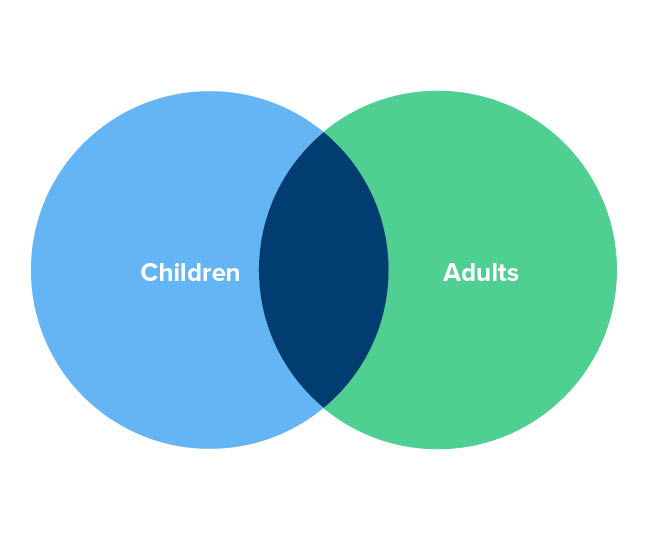
What is asthma?
Asthma is a chronic respiratory condition that causes inflammation and narrowing of the airways. It can cause symptoms such as:
- wheezing, a sound similar to whistling while you breathe
- difficulty breathing
- a tight feeling in your chest
- coughing
Symptom severity varies from person to person. Sometimes wheezing and coughing can trigger an asthma attack, where symptoms temporarily get worse. There’s no cure for asthma, but treatment can help. It’s important to treat the condition early to prevent health complications from developing.
These complications can be short-term, such as asthma attacks, or long-term, such as obesity or depression. Read on to learn what complications you can avoid with proper attention and preventive care.
It’s important to know when to see a doctor, if you have asthma. An asthma inhaler usually improves your symptoms. But seek immediate medical attention if your asthma symptoms don’t improve after using an inhaler.
Seek emergency care if you have:
- extreme difficulty breathing
- severe chest pain
- difficulty walking or talking
- bluish tint to the skin
Make an appointment with a doctor even if you have asthma symptoms with little or no exertion. Asthma can worsen over time. Talk to your doctor if the frequency of your symptoms increases and you have to use an inhaler more often. Your doctor may need to adjust your treatment.
Sleep
Some people with asthma experience most of their symptoms during the night. Over time, this can lead to serious sleep deprivation. Chronic lack of sleep impedes the ability to function properly at work and school. It can be especially dangerous if you need to drive or operate machinery.
Physical activity
Asthma may keep some people from participating in exercise or sports. A lack of exercise also increases your risk for:
- diabetes
- high blood pressure
- weight gain
- depression
Complications in adults vs. children
Adults and children experience similar asthma symptoms and signs. But the complications that develop can have a different impact based on age.


Asthma is a long-term and potentially life-threatening condition that requires ongoing treatment. If left untreated, there’s a greater risk for long-term effects and severe complications. These long-term effects include:
Medication side effects
Certain asthma medications can cause:
- rapid heartbeat
- hoarseness
- throat irritation (inhaled corticosteroids)
- oral yeast infections (inhaled corticosteroids)
- insomnia (theophylline)
- gastroesophageal reflux (theophylline)
Airway remodeling
For some people, asthma causes ongoing chronic inflammation of the airway. This can lead to permanent structural changes in the airways, or airway remodeling. Airway remodeling includes all the alterations in structural cells and tissues in an asthmatic airway. Changes in the airway can lead to:
- loss of lung function
- chronic coughing
- airway wall thickening
- increased mucous glands and mucus production
- increased blood supply in the airways
Hospitalization
The
At the hospital, you may be given oxygen through a face mask or nasal tube. You may also need fast-acting medication or a dose of steroids. In severe cases, the doctor may insert a breathing tube into your airway to maintain airflow into your lungs. You will be monitored for a few hours until you are stable.
Asthma attack and respiratory failure
People with severe asthma also have an increased risk for respiratory failure. Respiratory failure occurs when not enough oxygen travels from your lungs to your blood. Life-threatening asthma is rare, but tends to cause symptoms that get progressively worse over several days. Ask your doctor more about your treatment options and how to manage your condition, if you believe you may have asthma that is life-threatening.
If respiratory failure isn’t treated immediately, it can lead to death. The
Other factors
Pneumonia: Asthma affects the airways and breathing. This can affect how long it takes for you to recover from pneumonia. This infection causes inflammation in the lungs. Symptoms include difficulty breathing, a fever, chest pain, and a rapid heartbeat. But asthma doesn’t increase your risk for pneumonia.
Learn about the differences between asthma and pneumonia »
Mental health: One review examining previous studies found that people with asthma had a higher rate of psychiatric disorders than those who didn’t. This increased incidence is more common with cases of depression and anxiety. Another
Asthma complications occur for various reasons. Common flare-up triggers include frequent or heavy exposure to irritants or allergens, such as:
- pollen
- dust mites
- pet dander
- cigarette smoke
- household cleaners
In addition, some people are more prone to flare-ups after participating in physical activity. This is known as exercise–induced asthma.
Emotional and medical factors can also trigger asthma complications. Stress or anxiety can worsen asthma symptoms. A cold or acid reflux can do the same. Some people also experience asthma symptoms after taking certain medications, such as aspirin or ibuprofen.
Talk to your doctor to learn how to identify your individual triggers. Knowing them can help you manage your asthma. Keep a record of each attack or flare-up to pinpoint the underlying cause.
Asthma can be a serious condition, but with proper care, it’s possible to live a healthy, active life. Treatment can help you control and manage your symptoms. Although you can’t prevent asthma, you can prevent asthma attacks.
Since exercise can strengthen your lungs, ask your doctor about safe options, and gradually increase the intensity of your workouts. Don’t hesitate to seek emergency medical treatment if your symptoms don’t improve after using your inhaler.
